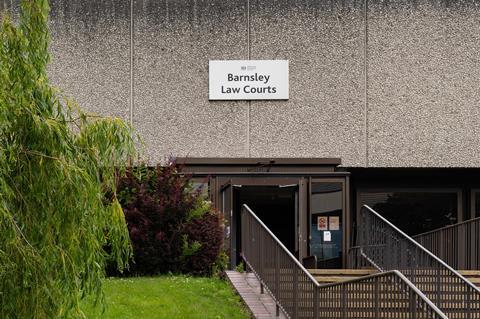A county court judge has ruled that he should penalise a claimant who wrongly tried to pass off that the defendant had made full admissions.
The defendant in debt recovery claim Total Extraction Ltd v Aircentric Ltd had tried to file an acknowledgement of service electronically through the Money Claim Online service but found the attempt was rejected and blocked by the portal. It transpired that a few days earlier the claimant had filed a request for judgment based on the defendant’s purported admission that they owed all the money still due. In fact, there had been no such admission by the defendant, who at the time continued to contest the claim.
Sitting at Barnsley County Court, District Judge Branchflower said the claimant was not entitled to enter judgment as a matter of fact. He found the act was done intentionally and not by mistake, and this amounted to the tort of abuse of process.
Branchflower said the claimant’s explanation that they had selected the admission entry by mistake was ‘inherently implausible’. The court heard that a function on the MCOL service warned against the option of selecting judgment by admission, stating that the operator should do so only if they have a copy in writing and can produce this for the court.

The defendant counterclaimed for £42,000 damages, arising from lost contracts and the inability to procure parts and supplies caused by the withdrawal of credit lines, brought about by the entering of a judgment against them.
The judge said the defendant could apply to have judgment set aside when it had been wrongfully entered, and recover the costs of such an application, but that provided no real remedy for the damage already suffered.
‘The claimant has caused immediate damage to the defendant by its wrongful entry of judgment on admission using the automated MCOL process,’ he said.
‘The process of entering judgment on admission within MCOL is a fully automated, ex parte process. Whatever warnings may be generated by the system during that process, there is, at the end of the day, nothing to prevent a claimant wrongfully and intentionally entering judgment and thereby potentially causing the defendant considerable financial loss for which, were there not a cause of action in respect of the same, the defendant would have no recourse to remedy.’
The judge found the claimant was liable on the counterclaim and said quantum would be decided at a later stage.



























12 Readers' comments